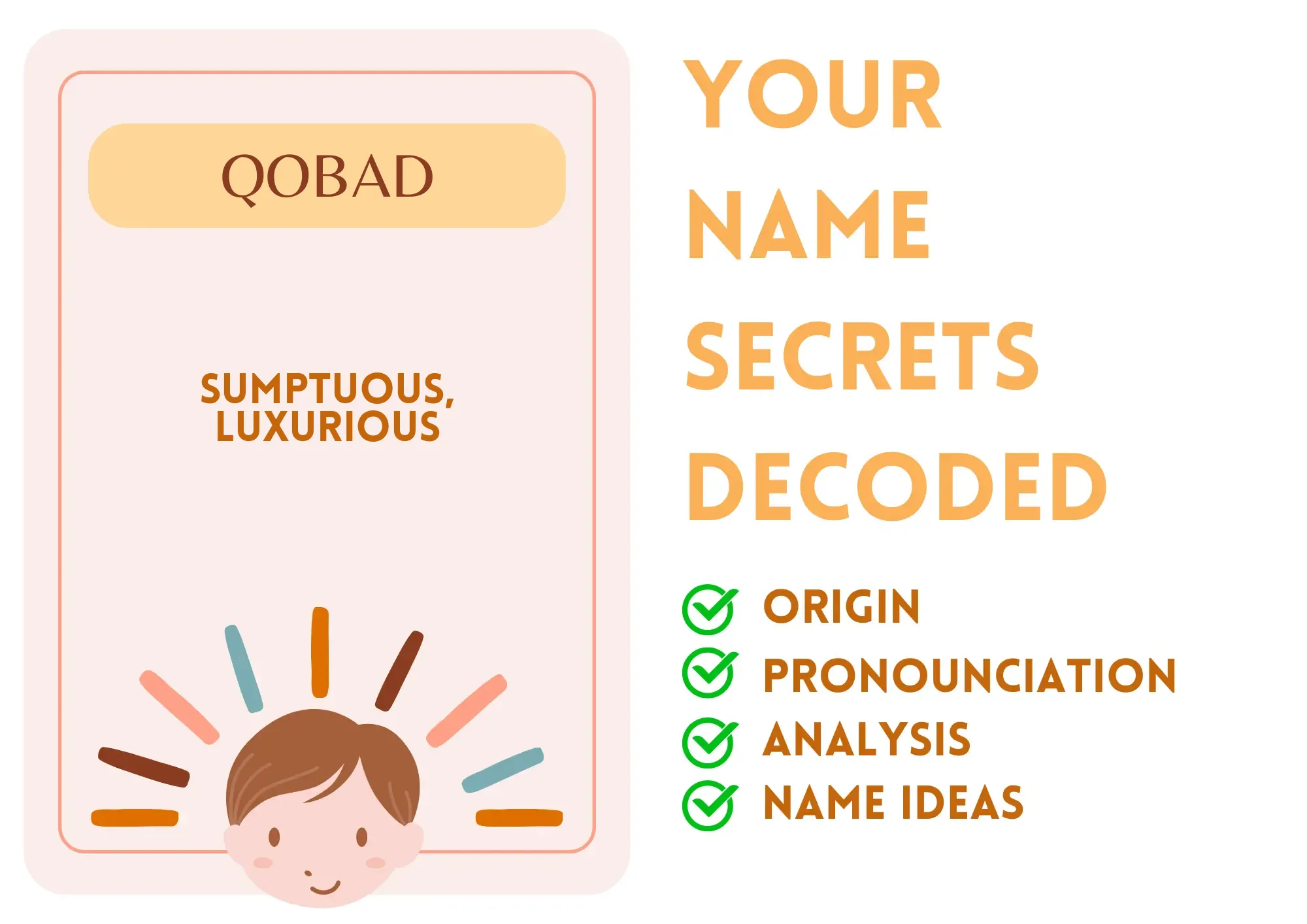
Qobad
Qobad is a historically rich name of Persian origin, meaning 'sumptuous' or 'luxurious.' It appears prominently in Persian history as the name of kings. Traditionally used as a masculine name, Qobad signifies strength and regality. It possesses deep cultural significance in Iranian heritage, often associated with leadership and nobility.
The name is positively perceived, evoking feelings of elegance, power, and grandeur. It is relatively easy to write and pronounce, contributing to its appeal.
Qobad features in the annals of Iranian history, particularly related to the Sassanid Empire, marking its enduring legacy in literature. It resonates well with parents seeking a name with historical depth and cultural resonance.
Basic Information
Gender: Boy
Sounds Like: KOH-bahd
Pronunciation Explanation: The name Qobad is pronounced with the emphasis on the first syllable 'KOH', followed by a softer 'bahd'.
Summary and Meaning
Meaning: sumptuous, luxurious
Origin: The name Qobad has Persian origins, closely tied to Iranian culture and history, particularly the Sassanid era.
Usage: Qobad is traditionally a masculine name, commonly associated with male figures in Persian history.
Name Number (Chaldean)
Name Number (Pythagorean)
Popularity (Global Rank)
Overall: 834989
Boys: 72681
Most Popular in
Religious and Cultural Significance
Religion: Zoroastrian
Background: In the context of Persian history, Qobad reflects the cultural and religious beliefs of ancient Persia, particularly Zoroastrianism which shaped much of Iranian identity.
Cultural Significance: Qobad is often revered for its royal connections, symbolizing power and the rich cultural tapestry of Iran.
Historical Significance: The name Qobad is historically significant as it was borne by Sassanid kings, particularly Kavad I, who ruled during a transformative period in Persian history. His reign is noted for political and social reforms.
Popular Culture
Literature and Mythology: Qobad is mentioned in various Persian literary works, often portraying themes of strength and nobility.
Movies and Television: While specific modern character references are sparse, the historical figure has inspired representations in various adaptations of Persian literature.
Feelings and Perceptions
Perception: Qobad is generally perceived positively as a strong and majestic name; it invokes feelings of nobility and grandeur. People appreciate its historical significance and elegant sound.
Positive Feelings: Strong, regal, historic, distinguished, powerful.
Negative Feelings: May have unfamiliarity for non-Persian speakers; some might find it difficult to pronounce at first.
Practical Considerations
Ease of Writing and Calling: Qobad is straightforward to write and pronounce, comprising five letters and two syllables, making it memorable and easy to call.
Common Typos and Misspellings: Qobat,Qobod,Cobad,Qobadd
Common Nicknames: Qoby,Badi
Qobad Popularity
Qobad Usage and Popularity By Country
| Country | Rank (Overall) |
|---|---|
| Iran | 10320 |
| Germany | 81441 |
Qobad Usage and Popularity By City
| City | Rank (Overall) |
|---|
Compatibility Analysis
Famous Persons Named Qobad
No results found for Qobad.
Related Names
Similar Sounding Names:
Kavadh,Kavad,Kobad